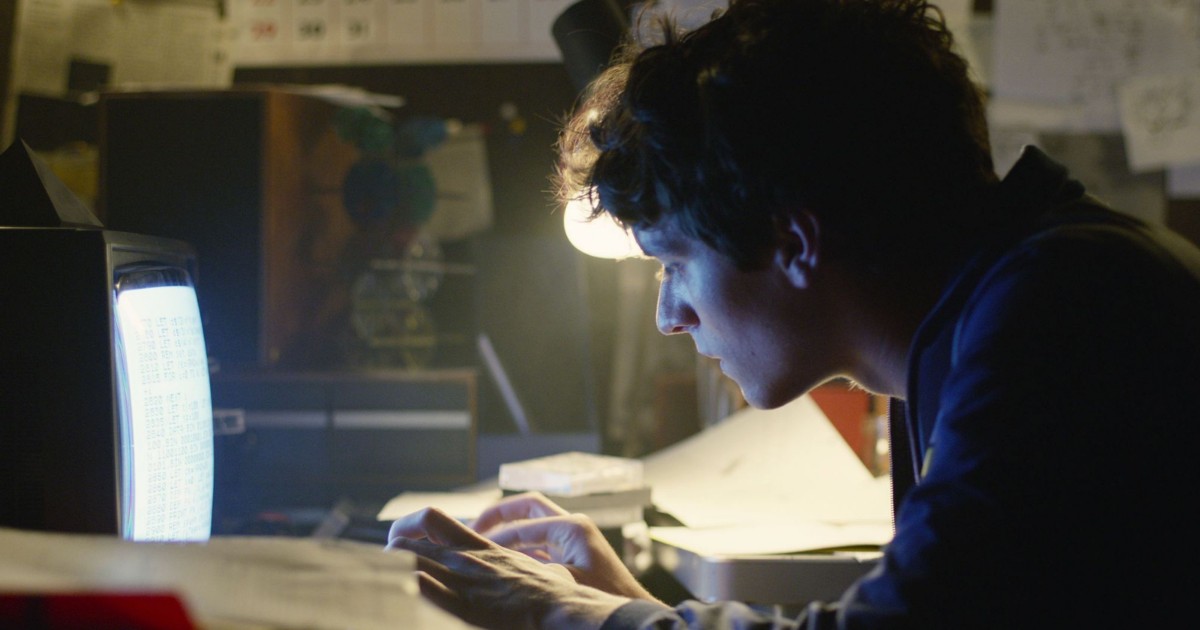Listen closely. Grab a pen and get ready to keep track of your decisions. And remember: You are not in control.
If you’ve been a fan of “Black Mirror” since its debut in 2011, you are undoubtedly familiar with the show’s knack for twisting speculative sci-fi premises into some of the bleakest bits of genre work on television. At its core, the anthology series is an examination of humanity’s flaws through the lens of theoretically perfect technology. Although it is arguable that some of the entries differ in consistency when matched with opposing episodes, each chapter of the anthology feels distinctly self-sustaining, an aspect of the show that keeps fans anxiously itching for new seasons. Thankfully, “Bandersnatch” is sure to satisfy that urge for more than a few faithful fanatics.
Taking place in the year 1984, the plot of the standalone entry focuses on Stefan Butler (Fionn Whitehead, aka the silent soldier from “Dunkirk”), a young, but troubled programmer assigned to adapt a choose-your-own-adventure novel into a video game. However, as Stefan’s obsession with perfecting the game continues to worsen, so does his increasingly strained and fragmented mental state. Soon, reality and delusion begin to blur, with disturbing consequences.
For the minuscule number of people who aren’t sold on that premise, the fact that you get to choose Stefan’s choices might convince you to invest a few hours into this interactive experience. Yep, you read that right. You – yes, you dear reader – get to decide the choices that Stefan makes over the duration of his psychological breakdown.
Surprisingly, this pioneering capacity for viewer interaction is the only element of “Bandersnatch” that allows the entry to separate itself from the anthology’s lesser episodes. In and of itself, the standalone film is not one of the more refined, or even thought-provoking, offerings that the series has produced in its lifetime. In fact, the storytelling, separated from interactivity, is rather stale.
Apart from poking at themes of free will and morality, the majority of the characters and subplots in “Bandersnatch” reflect showrunner/writer Charlie Brooker seemingly falling back on old tricks. Government conspiracies, parallel realities, and mental health are far from fresh territory for science fiction, or even “Black Mirror” as a whole. Moreover, director David Slade, unfortunately, leaves most of his trademark visual tricks at home, apart from a sequence involving psychedelic substances, which is admittedly standout. Similarly, Whitehead and Will Poulter deliver impressive performances, though both actors mainly function as garnishes used to complement the main course.
Nevertheless, that’s not to say “Bandersnatch” isn’t worth watching, especially considering the film is arguably one of the most innovative events to occur in the history of Netflix and streaming platforms in general. This is daring, sharp, and dark entertainment that takes enormous chances. Featuring a multitude of callbacks to previous episodes (let’s see if you catch the Easter egg for “San Junipero” on first viewing) and references to classic sci-fi works (“Donnie Darko” receives a quick visual nod, while the ever-present Philip K. Dick influence is used to great effect), “Bandersnatch” proudly emphasizes unconventionality over narrative structure. Balancing microscopic subtlety with bombastic absurdity, the interactive film keeps the atmosphere unrelentingly claustrophobic throughout its subjective runtime. Filled to the brim with fourth-wall breaks and surreal side tangents, some viewers may conclude their experience after an hour, while others will stay glued to their couch until they uncover every single ending.
Attempting to fully comprehend the experience as a whole is like trying to untangle a knotted assortment of frayed computer cords while blindfolded, and is virtually impossible to digest in one sitting. You can practically envision Brooker hunched over a desk, frantically scrawling out handwritten notes as he sorts out each story path and viewer decision. “Bandersnatch” is a meticulously constructed puzzle; a maze crafted by artists dedicated to pushing boundaries.
Venturing into “Bandersnatch” without knowing too much — or anything at all for that matter — is equally advisable for both newcomers and veterans of “Black Mirror”. While the entry may not rank alongside episodes like “White Christmas” or “Hated in the Nation” in terms of worldbuilding or jaw-dropping twists, it certainly does not pale too drastically in comparison, and at worst, resides in a category of its own. If “Bandersnatch” is an indication of things to come for “Black Mirror” and streaming service entertainment, the future may not be so bad after all.
So, grab a pen, watch closely, and don’t forget: You are in control. Or, are you? [B]





